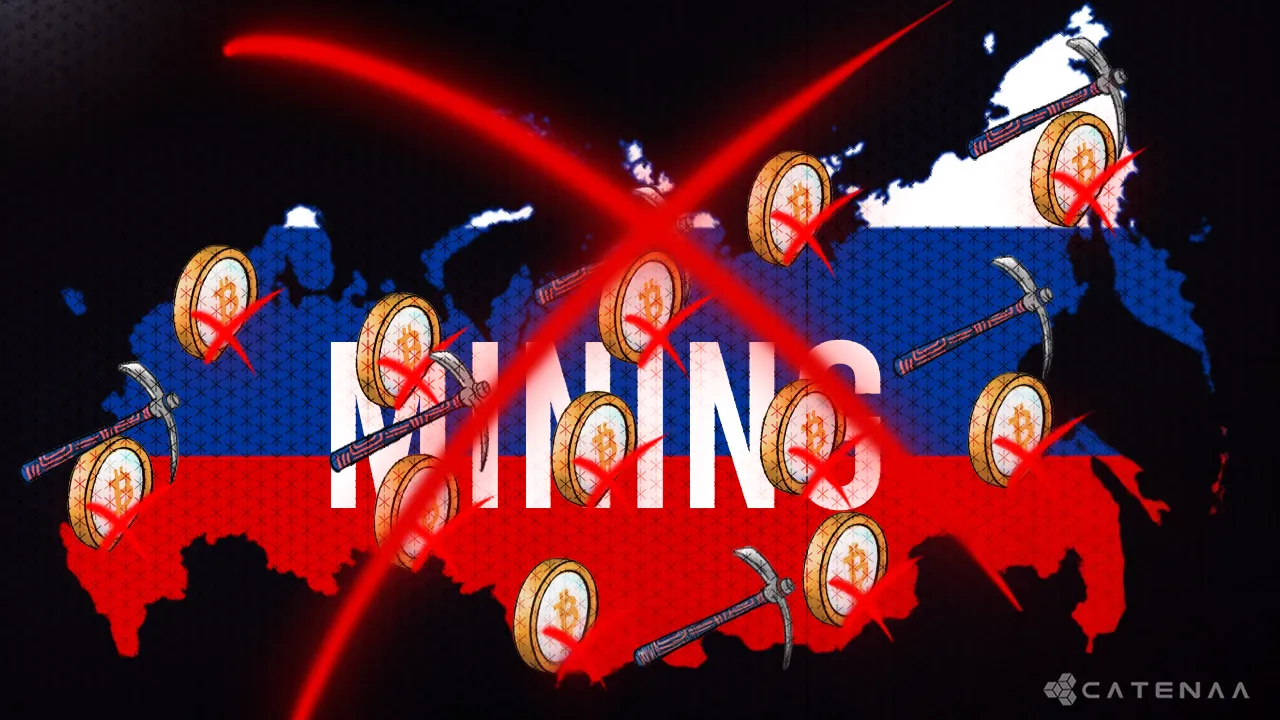Catenaa, Thursday, November 28, 2024 – The Russian government said it had temporarily banned cryptocurrency mining in key regions this winter to conserve energy.
The restrictions will affect Siberia’s Irkutsk region, parts of Buryatia and Zabaikalsky, six North Caucasus areas, including Chechnya and Dagestan, and Russian-occupied Ukrainian territories such as Donetsk, Luhansk, Zaporizhzhia, and Kherson.
Mining in Siberia will halt from December 1 to March 15, 2025, and remain restricted annually from November 15 to March 15 until 2031.
In the North Caucasus and occupied Ukrainian territories, the ban will extend year-round starting December 2024 through March 2031.
The decision was made by a government commission led by Deputy Prime Minister Alexander Novak.
This move comes as Russia solidifies its position as the world’s second-largest cryptocurrency mining hub after the US, consuming 16 billion kilowatt-hours annually for mining activities—roughly 1.5% of its national electricity usage. Energy-intensive mining in harsh climates has added pressure to Russia’s grid.
The ban follows the recent introduction of a legal framework for mining, requiring individuals and businesses to register with the Federal Tax Service.
Non-registered miners can mine up to 6,000 kWh per month, but those exceeding the limit must register as entrepreneurs. New rules also regulate mining-related data sharing with institutions like the Central Bank and electricity operators.
The government revised its tax policy, treating cryptocurrency as property for tax purposes. Miners will be taxed based on market value but can deduct expenses, with VAT exemptions for crypto transactions.
Although cryptocurrency trading remains illegal in Russia, adoption continues to rise, driven by war-related sanctions.
Russia has seen a boom in decentralized finance and increased activity on non-KYC Russian-language exchanges, highlighting the growing role of cryptocurrencies in the nation’s economy.
See related news here.


